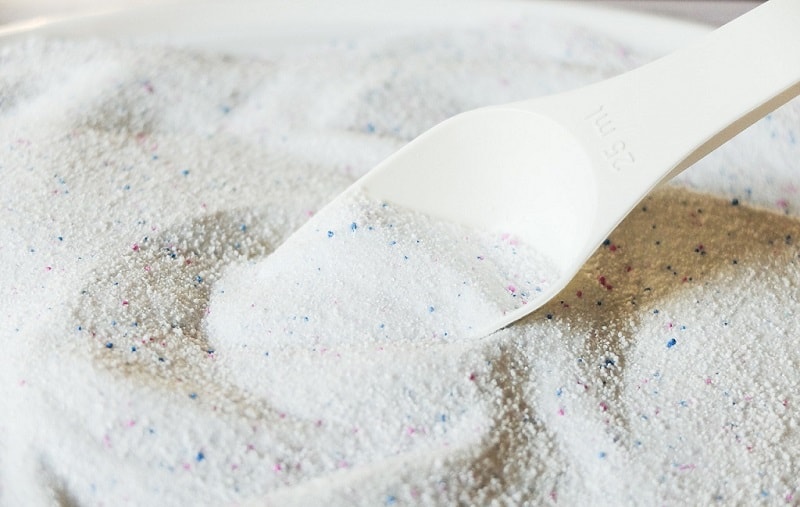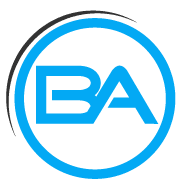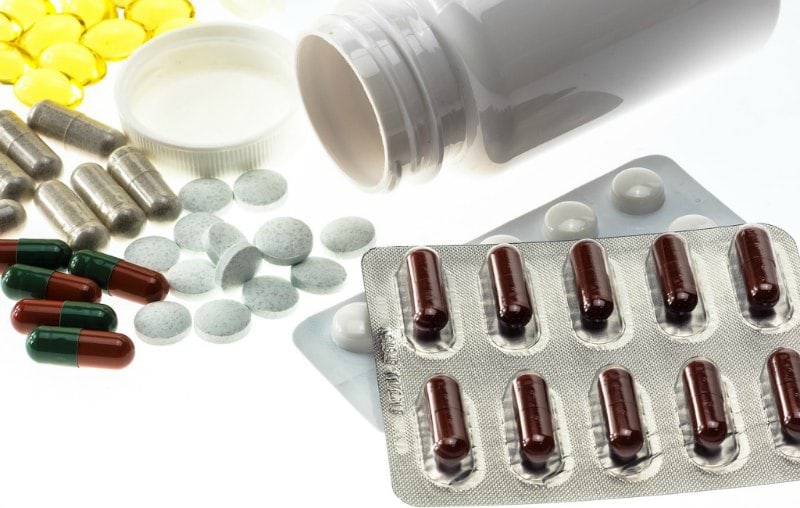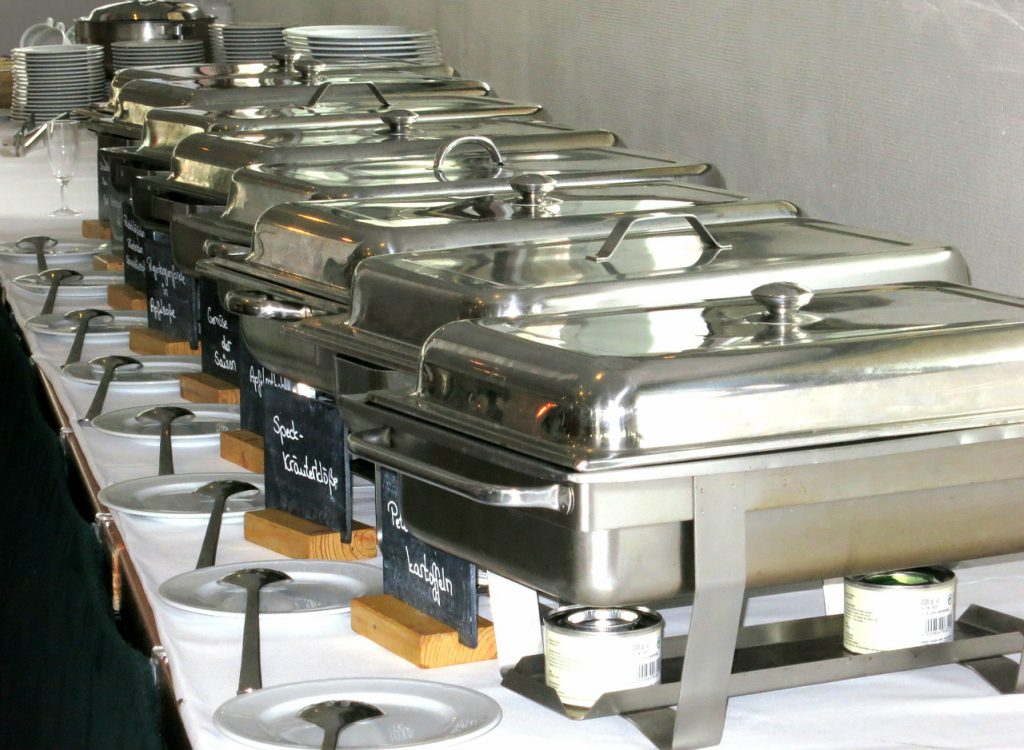Starting a detergent powder or synthetic washing powder business is one of the most feasible business options owing to the straightforward manufacturing process involved. Detergent powder market is one segment of the FMCG market in the world with significant growth potential. Being a consumer good, people use it on a daily basis for clothes, hand wash, and kitchen utensils, and its demand is found in the market all through the year. Moreover, an entrepreneur can initiate a detergent manufacturing business with moderate capital investment.
The per capita detergent consumption in India is around 2.7kg per year, while it is 3.7kg in Malaysia and Philippines and around 10kgs in the USA. Moreover, the global liquid detergent market is expected to grow steadily over the next four years and post a CAGR of more than 8% by 2021. Seeing such huge growth potential of the detergent industry, it comes as no surprise that we would like to throw some light on the steps that are needed to start a detergent manufacturing business in this section. Take a look:
1. Niche and Demographics
The detergent powder market can be broadly categorized to cater to the following market types: lower, middle, and higher-end. India alone boasts of Rs. 5,000 crore market and is amongst the biggest categories in the FMCG industry, following edible oils and biscuits. Rapid urbanization, emergence of small packs and sachets, wide range of choices, health awareness, and urge for good living are some of the reasons that are attributed to the growing demand for detergent powder all over the world, both for commercial and residential purposes.
Every family has different laundry needs. Kids’ clothes face very different challenges in comparison to working professionals in an office environment and so every detergent need is distinctive. So, it is important to decide the right category of powder that you plan on manufacturing, keeping in mind your business plan and budget.
Here is a list of categories of detergent powder:
- Heavy-duty detergent
- Phosphate-free detergent powder
- Light duty detergent
- Fabric soft detergent powder.
Moreover, there are 2 broad categories for a detergent based segment: Oil-based laundry soaps and synthetic detergents. These detergents are available in a wide variety of options in the market depending upon a different percentage of active ingredients and other components. These forms include:
- Powder
- Bars
- Liquid
Related- Start Soap Making Business
2. Formula of Washing Powder
The manufacturing of detergent powder is not so complicated and involves mixing of different ingredients in the right proportions. Each detergent making company has its own customized formula that can be crafted keeping in mind your target market. Here is a list of basic ingredients that are needed in a detergent powder manufacturing process:
- 85% active LAB acid slurry
- Sodium Carbonate
- Sodium metasilicate
- Alkaline sodium silicate
- Sodium bicarbonate
- Sodium sulphate
- Sodium tripolyphosphate
- Sodium carboxymethyl cellulose
- Phthalocyanine blue color or oil-soluble yellow color
- Optical whitener
- Perfume
- Water
3. Budget needed for Detergent Business
Budget is mentioned for a medium sized detergent powder manufacturing unit with a 1000m sq. ft. area. Keep a minimum budget in mind to be Rs. 25 lakh. This is because of the presence of a large number of competitors in the detergent manufacturing industry so initially, the struggle for selling would be too high.
- Manufacturing unit rent: Rs. 1 lakh per month
- Raw Materials: Rs. 4 lakh
- Branding: Not fruitful for business on this budget initially
- Employees
- Plant manager at Rs. 50,000 per month,
- Purchase officer at Rs. 30,00 per month
- An accountant at Rs. 30,000 per month,
- Factory workers with a salary of Rs. 10,000 per month each
- Supervisors at 40,000 per month per employee
- Engineer at Rs. 35,000 per month
- Salesmen at Rs. 30,000 per month
- Quality control manager at Rs. 30,000 per month
- Other staff like security guards, drivers, and electricians at Rs. 8,000 per month.
- Equipment: Rs. 10-15 lakh onwards
- Advertisement: Rs. 50,000 per month
- Insurance: Rs. 1 lakh cover
- License and registration: Rs. 50,000
4. Business Plan for Detergent Business
A great deal of market research and a well-framed business plan is needed before starting a detergent manufacturing business. The business plan should be able to incorporate your company’s mission statement, budgeting, and target market. Here are some of the most important elements that should be included in a business plan for a detergent business:
- Target Market
- Cost and Source of raw materials
- Plant capacity and Machinery cost
- Capital investment
- Management structure
- Marketing strategy
- Detergent manufacturing process
- Detail financial plan
Incorporating all these crucial aspects of your business plan helps you in keeping your expenditure in check. It also helps you to understand where all you intend to spend your finances and how you would be achieving your business goals.
5. Legal
Deciding on the legal pattern of your company is the next important step. Registering your business name is of utmost importance and you can initiate your business as LLP, Pvt. Ltd. Or Ltd Co., partnership, or as a sole proprietor. Registering your business as a SSI unit helps in obtaining government subsidy. Next comes opening a bank account under your business name to carry out all business transactions.
Especially in a detergent making business, it is important to apply for a ‘Consent to Establish’ and ‘Consent to Operate’ from the Pollution Control Board. For this, in India, for instance, you need to have BIS registration and IS: 4955-1968. It is specified for synthetic detergent powder for household use. Also needed is a trademark registration to protect your brand name and trade license from the local municipal authority. To initiate the distribution network, opt for ‘Distribution Agreement Paper’. In India, additionally, you can apply for MSME Udyog Aadhaar online registration and GST registration.
6. Location
The factory location should be chosen carefully keeping in mind that the location should have adequate availability of water, electric power, and transportation. Moreover, it should also be set up in a region having close proximity to the source of raw materials and somewhat nearby the target market.
The factory should be in compliance with state and government zoning requirements. Also, the leased property should be suitable for your equipment and should have ample parking facilities. The factory should be located in an industrial zone and there should be easy access to the factory through land transportation.
7. Equipment Needed
An average detergent powder manufacturing plant needs a few modernized tools and equipment and ample space to work in the manufacturing facility to initiate the manufacturing process. Below is the list of equipment needed:
- Mixing vessels
- High-pressure tanks and reactors
- Reactors
- Neutraliser
- Pulveriser
- Cyclone
- Blender
- Weighing scale
- Storage and raw materials tanks
- Furnace
- Blowers
- Conveyors sieve
- Spray dryer
- Perfumer
- Packaging machine
- Waste disposal baggies and plastic bags
- Anti-pollution unit
- Gas or electric stove
- Blenders, hand gloves, and basins
8. Raw Materials Required
The next important step is to look for the most ideal and cost-effective supplier of raw materials who can ship these to you at your manufacturing facility warehouse. Purchasing raw materials consumes about 60% of the detergent business’s working capital. One can also purchase these raw materials yourself from the wholesale market, however, doing this can be cost-effective and very time-consuming in the long run.
Detergent powder manufacturing formulations essentially consist of active ingredients, STPP, Filler such as sodium sulphate and silicate. Here is a list of raw materials needed to initiate a detergent making process:
- Trisodium Phosphate
- Sodium sulphate
- Soda ash light
- Labsa
- Surfactants
- Sodium Tri Polyphosphate (STTP)
- Sodium Meta Silicate
- Carboxy Methyl Cellouse
- Glauber’s salt
- Colour
- Fabric softeners
- Enzymes
- Detergent builders
- Bleaches and compounds
- Caustic soda
- Sodium silicate
- Synthetic perfumes and fragrances
- Alkylbenzene sulphonate
- Polythene bags for packaging
Note- If you want machines and raw material then Click Here
9. Manufacturing Process of Detergent Powder
There are predominantly 2 processes of detergent manufacturing:
- The Raw Material Mixing process (suitable for small-scale production), and
- The Spray Dried Process (for large-scale industrial production).
Let us take a look at both of these processes in detail:
Raw Materials Mixing Process/Blending Process
In the blending or mixing process, first ingredients like surfactants, builders, and perfumes are fed to a large blender. This process involves 2 types of blenders with varying capacity. One blender is a rectangular shaped blending type while the other one is a cylindrical ribbon blender. The latter one comprises of built-in blades that allow scraping and mixing of all the ingredients. Solid phosphates, additives, sodium silicate, and linear alkylbenzene paste are mixed in a slurry tank. Once all the ingredients are mixed together, the mixture is fed to a conveyor belt through a doorway at the bottom of the blender. The belt then shifts the detergent to a rotary sealing machine and the product is then finally packed and sealed for selling purpose.
Spray dried Process
First, all the dry, as well as liquid ingredients, are mixed together in a slurry or thick suspension in a tank known as a Crutcher. The slurry is then heated and pumped into the top of a tower, and eventually sprayed through nozzles under high pressure until small droplets are formed. The droplets fall through a current of hot air, forming hollow granules as they dry.
The dried granules are collected from the bottom of the spray tower where they are screened to achieve a relatively uniform size. After the granules have been cooled, heat-sensitive ingredients that are not compatible with the spray drying temperatures (such as bleach, enzymes, and fragrance) are added.
Traditional spray drying produces relatively low-density powders. New technology has enabled the soap and detergent industry to reduce the air inside the granules during spray drying to achieve higher densities. The higher density powders can be packed in much smaller packages than were needed previously.
Agglomeration, which leads to higher density powders, consists of blending dry raw materials with liquid ingredients. Helped by the presence of a liquid binder, rolling or shear mixing causes the ingredients to collide and adhere to each other, forming larger particles. Dry mixing or dry blending is used to blend dry raw materials. Small quantities of liquids may also be added.
10. Branding
Understanding your target market makes it easier to adopt branding strategies for your product. Some consumers differentiate between various brands by looking at various ingredients while others focus primarily on the packaging. Besides, a single brand is often available in various forms: liquid, powder form, or single-dose, calling for different techniques for each one of them.
Also, think of some catchy and unique business names that would be most suited for your detergent making business. Eventually, it is your brand and you would want it to be a reflection of your visions and values. Create a unique brand logo that is enticing and appealing to the masses and underlines your core values.
Consider, for example, the premium detergent brand ‘Tide’ that has a trademark that is easily recognizable in striking colors of orange and yellow, superimposed by the name ‘Tide’ in blue. It was one of the first brands to be packaged in Day-Glo colors that are known to be strikingly eye-catching. The coloring scheme was meant to convey an aggressive impression of the ‘rugged strength’ of the brand.
11. Decide Pricing
Estimate your annual production cost keeping in mind the cost of raw materials, utilities, labor, and maintenance. On the basis of your target market and product, you would have to finalize pricing for your detergent. Also consider additional parameters like lease cost, overheads, marketing, and distribution expenditure, in addition to the cost of finance and depreciation. One must also consider the fact that the prices of some raw materials might increase at a later stage so you cannot change your product pricing every time, nor can you sell your detergent at losses. So, one must carefully consider potential price inflation too before setting up the pricing.
Even though the detergent manufacturing business is highly profitable, there is stiff competition from various big brands. And so, products should be priced accordingly considering all the above factors. Learn more about your competitors’ prices in your area and then set prices, on the basis of sales tactics.
12. Detergent Waste Disposal
Being a synthetic product, laundry detergents are subject to grave risks to the environment. The phosphates used in the making of these detergents are a source of pollution in the region. Additionally, a great amount of industrial waste faces the issue of safe disposal. These wastes pose a lot of health hazards to the surrounding ecosystem and also contribute to a high level of pollution.
The proper arrangements should be made for the disposal of solid waste as well as liquid waste. All bio-medical waste shall be destroyed as per the provisions of the Bio-Medical Waste Rule, 1996 in India. Apart from it, provision should be made for the proper and safe storage of waste material waiting for disposal.
13. Advertisement for Detergent Business
The promotion of the product plays an essential role in the success or failure of a business. Now there are so many mediums through which you can advertise or promote your washing or detergent powder and can reach a maximum number of people. Because detergent is a consumer goods business, a huge amount of media promotions are required to establish the brand. At first, you can focus on targeting your local market and then think of expanding your operations to nearby areas.
Focus on a detailed company website that speaks a lot about your organizations and product. Opt for different marketing strategies such as traditional printing and television advertisements. Successful marketers also utilize social media to boost the popularity of their company’s laundry detergent brand. For example, the makers of Gain laundry detergent launched a “sniff contest” via Facebook, inviting consumers to purchase a bottle of Gain, smell the scent, and share a brief story or video about their sniffing experience. The campaign drew more than 300,000 stories, videos, and new Facebook fans. Following the success, the company dubbed its fans “Gainiacs” and continues to engage them through social media. Likewise, you can consider arranging competitions between the same budget detergent powders to gain customers’ confidence in your brand. Additionally, you can place dealer boards at various locations with your brand name and even distribute some of the products to the shopkeepers for free initially.
14. Washing Powder Sellers
By this time, your product is legally ready to be rolled out in the market and it should be worth all the hard work that has gone into it till now. One way is to focus on maximizing your B2B channels to the maximum. Establish a strong distributor-dealer network. Do some outdoor media activity. Employing commission based sales representatives can help a great way of boosting sales. Also, ensure that your product is available at all the retail counter within the area you are catering to.
You can also give offers to retailers also in the beginning so that they only sell or at least introduce your products to their customers. Offer some perks or discounts to shop owners to improve your sales like a short domestic or an international trip, a yearlong free supply of your products, and so on. Some of the opportunities that you can explore in order to sell your product are:
- Local co-ops and Natural product stores
- Online Retailers
- Company’s website
- Super Markets
- Brick and Mortar store






Awesome this article was very helpful to me and it will continue to helpful.
Hi, I want to start a new manufacturing plant for detergent.
Can I join your business? I know detergent formulation; if you interest please contact me.
Yes off course
Interested. How much do you know about the formulation?
Send me your contact details we can start together Elumalai.
Hi
I have been a detergents distributor and supplying a number of stores. I want to grow into manufacturing. Would you be keen to advice and guide me accordingly?
Bro formulation solunga bro
Useful…..
An excellent article…
Thanks very much for sharing such a wonderful article about detergent powder processing,
I believe this business can be started with lower costs also, even with a few types of machinery as I know
1.Ribbon Blender Mixer
2.Screener Vibrator
3.Packaging Machinery
On to of that, we can further remove packaging machinery from it with a manual packing or bulky packings.
it can also decrease our cost,
Thanks for your honest view as assumed
Can you further share your experience as I am interested?
Sir, can u give your idea how can we setup detergent powder business at minimum cost?
Good Job. Insightful.
Can you please share with me how to start with less capital?
Dear Zeeshan Arain
I am very much interested in this business may you please share more about setting up equipment at low costs?
Please can I connect with you on any social media platform, please? I need help with cost moderation and packaging; it is a challenge for me
Good day, I just stumbled on your post and comments. I must commend you for the information. I am an African and I want to start detergent powder manufacturing, and I will like to have a good discussion with a mentor like you.
I will be happy if you can give me this opportunity.
Thanks
THIS IS VERY INSIGHTFUL, GREAT JOB.
Very nice. Your knowledge is very impressive, I’m interested, but I want to know how much will it cost to start with a small quantity?
That you need to calculate as per your requirement.
I want training about this
Check our course. Here is the link
https://course.businessalligators.com/p/business-crux-1-0/
Thanks, this is very useful.
I want training for this.
Email us on our official email id with your phone number; our team will contact you.
Hi, very thankful for your information, I am very interested in this business. Can you please guide me for starting this with 1m cost.
Very detailed and awesome article. I am in this business, and right now, I am searching for partners. If anybody wants to start this from scratch is a very tedious process. I had done half of the work.
If anyone interested contact me.
Dear Suraj,
Are you still looking for partners? I am based in South Africa and am interested in this business.
I am based in Tanzania; I am looking for a partner.
Where are you based?
We are Indian based company, but we help internationally.
I would like to partner with you.
I find this article very useful for business, but sir is 25 lacks sufficient to set up this business?
The budget depends on the target market, but yeah, for starting in an ordinary market, this budget is sufficient.
This budget is too much for starting so kindly tell me about how to minimize budget and send pics of the detergent plan.
Check our services for more details, here is the link
https://www.businessalligators.com/services/
I want detergent powder making machine
Share your contact number over email, our team will contact you to provide machine and other raw material
I find this article very useful, I want to start this business with minimum cost so looking for machines which I require and information about raw material.
Kindly contact
One of our team members will call you.
I need a production line too. Contact me via Whatsapp.
How much does a large scale detergent making machine cost in dollars?
There is no limit of the large scale. It varies on location to location, total market size, and the quality which you are planning to offer.
That’s amazingly described in a very easy way. Read the full article; it was really awesome to get knowledge, thank you, sir.
Glad you liked it Subhash ☺️
Hi, thanks for all the information you shared with us; I have been selling the washing powder in 20 liters. Now I want to grow my business and start making the washing powders myself, of course, I would like to start in smaller quantities. So please tell me which machines will best suit my initiative?
Great job
Thank you so much for the information. I also want to start a washing powder business.
Great, let us know if you face any problem.
I am a person of 56 years in age and I want to start a washing powder business. The business I want to set up for my daughter who is doing her graduation and she can capitalize over my investment. Will it be feasible to go ahead with and how much capital investment and time will be required to set up the business? I want to set up the business in northern India near Delhi. I will be grateful if you can suggest the right place to set up the industry and the establishment cost?
Really helpful
Thanks
Thanks for your detailed information on going into detergent production.
Got some basic facts here, cheers.
Glad to help you 😍
Could you help me to setup in canada(toronto)
Great info material. I am interested in setting up a plant.
Could you please contact me for a one-on-one with regards to equipment, raw material, detailed processes, and training?
Cheers,
Bishop.
As of now, we are only helping in marketing/ business penetration. If you need any help in this area of business then do let us know.